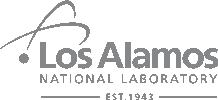Plant Fuel-Reload Optimization
Goal
To develop an integrated platform that uses state-of-the art computational and modeling techniques and integrates all tasks required for plant fuel-reload into one automated process.
- Development of an artificial intelligence (e.g., genetic algorithm) automatized reactor core designing platform plug-and-play type with various physics simulation tools.
- Multiphysics simulation with feedback from system analysis and fuel performance including uncertainty analysis.
Outcome
Researchers will develop an integrated platform that combines tasks for a fuel-reload analysis and fuel-pattern optimization. The integrated platform removes manual data transfer between tasks, eliminating human error, and the optimization capability allows for reduced fuel-batch size. This integrated platform also allows the transition from a deterministic approach to transient and accident analyses to a probabilistic (risk-informed) approach. The risk-informed approach to safety evaluations will enable additional reductions in fuel-batch size. The integrated platform will be ready for deployment to industry, giving utilities the option to perform fuel analyses in-house, independent from fuel vendors, which will provide additional savings. This work will assist industry with the transition to accident-tolerant fuels (ATFs) because the developed integrated platform and computational platform will be capable of performing evaluations of ATF during both the licensing phase and normal plant operations.
Planned major accomplishments
- Complete an economic benefit assessment for the new fuel-management plan and extend the framework's capabilities to other core configurations (i.e., pressurized water reactors with ATFs and 24-month refueling cycle, generic boiling-water reactors).
- Complete demonstration of ready-for-deployment framework to the industry, including equilibrium scenarios (i.e., normal plant operation).
- Prepare a topical report that demonstrates the framework and its capabilities, including regulatory-required steps for a typical license-amendment request. Support the topical report review and approval process by the Nuclear Regulatory Commission.


